Garden Pests: No Problem If You Foster Soil Life, Diversity and Balance
- Florida Native Leopard Frog In The Pond
- Leaving the House for The Garden
- Fungi on Rotting Log
- Florida Native Milk Weed Flowers
- Monarch Larvae Munching Milk Weed
- Balsam Pear, (Momordica chanteria), aka wild Cerasee
- Seminole Pumpkin Leaf
- Sunflowers
- Broccoli With Floret Start
- Okra Flower
- Passion Flower from Fruiting Pasaflora
After I wrote the article Garden Pests: Nematodes I received a comment from Naomi. She wrote “Wow, mind boggling how many things can go wrong in a vegetable garden!” Her comment made me realize that I did not bring home the point of my article very well. While there are lots of potential problems and pests that can adversely affect your organic vegetable garden, by fostering soil life, diversity and balance in your yard and in your gardens you can help to keep the damage from pests at a manageable level.
There are lots of potential pests and problems for your garden if you do not adequately build and maintain the organic life in your soil and pursue balance for the ecosystem of your yard. Your job as a gardener should be to foster the life of your soil. Use no synthetic fertilizers (salts in synthetic fertilizers burn soil organisms), use no poisons, do not till or turn the soil, and be sure to add lots of organic material, mulching while growing, and composting while fallow, growing mulch or cover crops, adding compost to beds that don’t go fallow often, rotating your crops from season to season, and practicing companion planting in and around your garden.
You must also consider the culture in your yard surrounding the vegetable garden as well. You can not expect balance in your vegetable garden if your yard is out of balance. Create ecosystems that sustain themselves all around your homestead, and not just in your vegetable garden. Leave some wild spaces, let some flowers grow, add a water feature of some sort, and avoid using toxins in your yard at all costs.
This focus on balance works because in a balanced natural setting all living things are consumed by other living things. Making sure your soil is alive and your yard is a diverse ecosystem will not guarantee that pests will never munch or suck on your crops, after all I just got done saying that all living things are consumed by others and that means your plants too, but with balance you will find that your very healthy crops will not attract or succumb to as many pests, and the pests will attract
predators of their own. This is why using pesticides should be the very last thing you want to do in your gardens. It is nearly impossible to kill only the pests that are attacking your crops. Pesticides will destroy the predators that can successfully hunt pests from your gardens, and your balance is sacrificed.
Some of the best pest control I have practiced is done by keeping a sharp eye on my crops. If you take a look at your plants each day it is pretty easy to catch a hatching of caterpillars, or a new crop of aphids.. ants plant aphids, so watch for ants on your bean and pea plants especially at the flowers and new growth areas. I have had luck just flicking ants and squashing aphids, if I am watering I can gently spray them off too. I have a friend who uses soap sprays for aphids, but if the infestation is that bad I usually drop back and consider how important that crop is to me, and whether it is growing in optimum conditions and at the right time in the season. I have cut down aphid infested pea crops before, they make a great green mulch for the garden, and an opening in the garden is an opportunity for the next crop.
The last thing I want you to believe is that there is some evasive and random magic involved in making a successful organic garden. The truth about no till organic gardening in South Florida is that it is the easiest way to succeed at growing quality fresh food for your family. Keep the size of your garden manageable, take good care of the soil so that the plants can take care of themselves, and try to be flexible. If what you are trying to grow isn’t thriving record the failure somewhere for future reference, consider why your crop may have failed, and what might work better in that place and time, and plant something else, or work on soil building there for the future.
Weather is the variable we can’t control, but the vegetables we grow here in South Florida in the winter time are able to thrive in our average winter weather, and can also endure some extremes as long as they are healthy to begin with. Proper soil treatment will even help your plants to better endure weather extremes and the stresses we might exercise on them while protecting them from harsh weather conditions. So keep your soil healthy, add lots of organic material off season and mulch between rows and around plants. Plant the right plants at the proper times in the season, and keep records about the location of your crops in your gardens, and by all means keep it simple, no boggling minds!
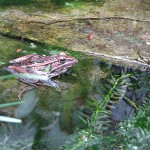
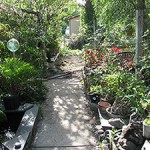
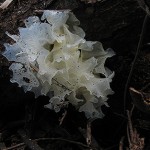
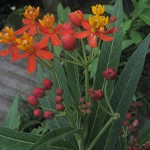
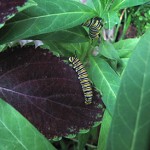
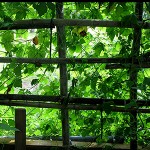
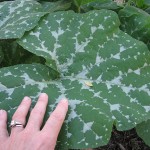
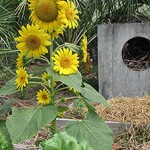
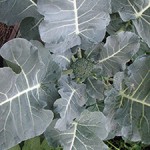
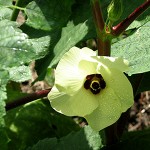
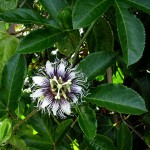

8 Responses
I guess “pest” is how you wee it (like “weed”)….
Gorgeous photos as always.
I meant “see it” 🙂
Got it! I actually used soap for the first time this year but I think the reasons some of my veggies were getting attacked was because I planted them too late (or too early depending on how you look at it,) they got too hot, too dry and I might just take your advice and just replace them with more appropriate veggies.
Thanks!
Thanks for your comments Sara and Naomi. Best of luck with your garden, I can’t wait to see those pics.
I’m getting very frustrated w/the continued pest problem on cucumbers and herbs in my garden! I have a section of my yard that is unmowed, various native flowering plants around, and my neighbor has lots of flowers too. All of these things I have done to encourage “good” bugs, but I’m wondering if I just made a nice home for “bad” bugs. I have yet to be able to get a single cucumber in two years! My herbs don’t last long either before being consumed by something. Blackeyed peas never get a chance to flower also. So far the only thing I have grown with any success is okra, which produces well in spite of being completely covered in aphids. I had a big problem w/pepper plants last year, but this year’s seem to be doing well so far. What can I do to get some cucumbers? Is there a certain plant I put near them that will repel whatever is eating them?
Hi Debbie, I feel your pain. It is tough when you are pretty sure you are doing all of the right things, and pests keep devouring your crops. I can grow most crops with a satisfactory success rate. Cucumbers are not the easiest crop for me. The timing for them is critical here in S. Florida. They like it warm not hot, not humid, not intensely sunny, but not entirely shady, and even when they come up beautiful and strong they can be knocked down pretty fast by boring worms especially if the weather gets too hot, or turns humid. I have had my best luck in the fall with October plantings if the weather cools off as it is supposed to. They also need very good soil. Our native sandy soil, lacking in organic mater will not support the needs of cucurbits. Nasturtiums make good companion plants for cucumbers, especially yellow ones that attract aphids to themselves. Radishes and marigolds would also be helpful in among the cucumber plants.
Are you here in S. Florida?
Are you using any organic or conventional pesticides?
What does your soil look like? Are you mulching? turning? composting? amending in any way?
I’m here in PSL, I’ve talked to you once or twice at the Ft.Pierce farmer market! I do compost kitchen scraps and add horse and chicken manure to the soil. Since it’s Oct. now, I’m going to try the cukes again. I had planted some in Aug. on advice from a FL garden book, but they all died. I happen to have some nasturtium seeds I can plant with them, though those are another plant that has not done well for me so far.
Ok Debbie, I am glad to hear from you. Timing may be your only issue. If you want a consult or even to talk about a consult give me a call.
While cukes are tough to grow Nasturtium should not be a problem to grow in our cooler season. (Oct.- Apr.) Florida garden books are generally great, but if you are reading information for north or central Florida and you are in South Florida you might as well be reading about growing in another state altogether. Florida has four growing zones, and here in zone 9b we have more in common with Houston Texas than we do with Pensacola, Jacksonville or Gainesville.